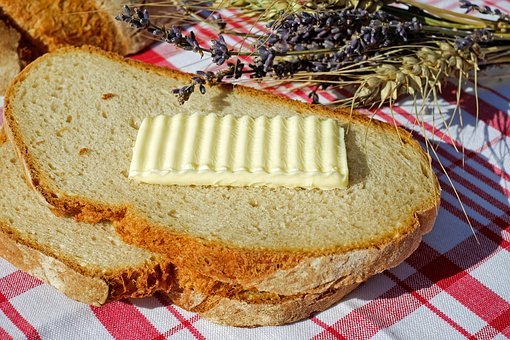How Bad is "Bad" Fat?
When it comes to dietary fat, what's the real "take-home" message? Here's a quick summary: Fat is divided into "good" and "bad" types. Stick with the "good" fats - unsaturated fats from plant sources, and avoid the "bad" fats - saturated fats from animal sources. A newer addition, "trans" fats (that started out as plant fats and were chemically converted to act like animal fats) also goes in the "bad" fats list.

credit
Why are they bad? Because abundant scientific evidence shows a link between a high intake of saturated fat, and high levels of LDL (think "lousy") cholesterol - which in turn is linked to higher rates of heart disease. The key word here is "linked". That means connected, but it's not always an absolute fact.
In fact, over the past decade, some studies have questioned whether this link is as strong as has been previously thought (based on a scientific view, called the "lipid hypothesis" supporting the connection between saturated fat intake, cholesterol, and and heart disease.) These studies suggest that small amounts of saturated fat actually support good health and that a balance of fats is important in the diet.
Before you run out and gobble down a giant steak and bowl of premium ice cream to support "good health" I'd like to suggest that you look at your dietary fat intake in a new and different way: Moderation of all sources of dietary fat. If we downsize our overall intake of all sources of fats, we'll have a lot easier time maintaining (or losing) our weight and having sufficient "caloric room" for an abundance of fruits and vegetables that should be the foundation of a healthy diet, as well as moderate amounts of protein and some fat.
Many of us make the mistake of choosing plant fats to replace animal fats, which can often lead to over-consumption of calories. Saturated and unsaturated fats have the same number of calories - 120 per tablespoon. I often hear from people who feel they're doing a health promoting activity by frying their chicken in olive oil (plant fat) instead of lard (animal fat). To me, the health promoting activity is to bake the chicken (and remove the skin before eating).
When it comes to dietary fat, I think we need to think this through a little more. The food police won't come and arrest you because you enjoyed a steak or a slice of cheesecake now and then. There's no reason to feel guilty about these choices; you're not a bad person because you chose a "bad" fat! It's all about the portion size: Think 6 ounce steak and small slice of cheescake, not the 16 ounce porterhouse and giant slab of cheesecake.
Limiting saturated fat is a good idea. Eliminating all saturated fats is going to be hard, and lead to deprivation.
While diet is a significant factor contributing to a healthy cholesterol level and healthy heart for most people, there are other factors that are also important, including family history and genetics. You probably know someone who doesn't eat a drop of saturated fat and has high blood levels of cholesterol. Or, the person who eats butter, meat, cheese and other saturated fats and has a cholesterol level in the healthy range and a healthy cardiovascular system.
Many people respond amazingly well to lowering their saturated fat intake, reflected in a lowering of their LDL (bad) cholesterol. Some people do not. If you've made this effort, and it hasn't lowered your LDL, it's not your fault. Talk to you doctor about other ways to improve your heart health.